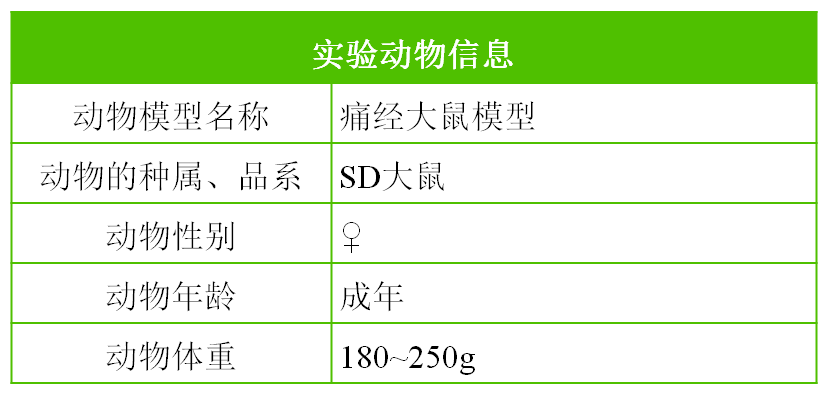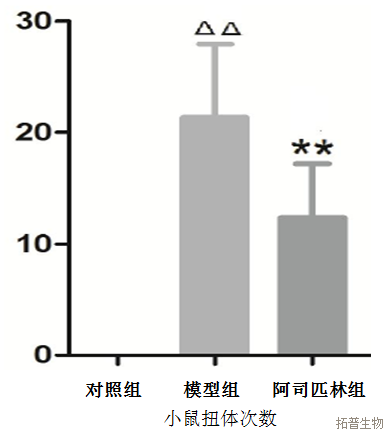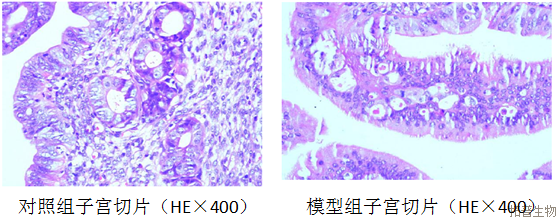Dysmenorrhea model
Primary dysmenorrhea refers to pain and bloating in the lower abdomen before and after menstruation or during menstruation, often accompanied by symptoms such as sweating, headache, vomiting, and diarrhea. After gynecological examination, there is no organic change in the reproductive organs. Modern medicine believes that the direct cause of dysmenorrhea is the severe contraction of the uterine smooth muscle, which leads to an increase in pressure inside the uterine cavity. Along with the continuous spasm of blood vessels in the uterus, the blood flow in the vessels decreases, causing the uterine muscles to further contract. Due to ischemia and hypoxia of the uterine tissue, pain occurs.

Observation indicators
Twisting frequency, PGF2 alpha, PGE2, uterine index, and pathological examination
Partial Results Display




